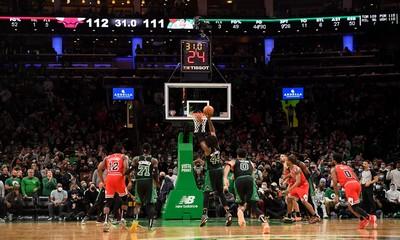
Respect creates resonance: the way for NBA to interact with China
Ding Gang
The National Basketball Association (NBA) has signed a multiyear deal to play pre-season games in Macao Special Administrative Region from 2025. The Brooklyn Nets and the Phoenix Suns will play two preseason games hosted in Macao in October next year.
The location is obviously carefully chosen. And make no mistake – this is not just about basketball. It’s a delicate, calculated step in the diplomatic dance of China-US cultural relations, a test of whether the NBA can once again warm its way into the hearts and wallets of Chinese fans.
However, the story here is about more than sports or commerce. It’s about rediscovering the core principle of cultural exchange: respect.
Let’s rewind to the debacle of 2019 when a single tweet by then-Houston Rockets general manager Daryl Morey triggered widespread dissatisfaction. His message was seen as an insult to Chinese people and cost the NBA sponsorship deals, broadcasting rights and a staggering loss of untold millions.
That tweet was, in essence, a failure to grasp a simple truth: cultural exchange is not about lecturing or imposing ideologies. It is, at its best, a two-way street paved with understanding and mutual respect.
The NBA isn’t just a professional sports league. It’s a global cultural force. From fashion to music, it transcends the boundaries of the hardwood.
But here’s the rub: being “global” isn’t just about exporting your brand to other markets or making more money in the world market. It must start with respecting and embracing the other’s culture; it’s not about winning or losing on the basketball court. It’s about fitting that brand into the mosaic of different cultures. This is where the art of cultural exchange matters most.
Look no further than Yao Ming, a walking masterpiece of cultural diplomacy wrapped in seven feet and six inches of humility. When Yao first entered the NBA, many doubted he could measure up to the intensity of the league. Instead, his efforts transcended sports, bridging cultural divides and showing America a face of China based on respect and sportsmanship.
Yao wasn’t just an athlete, he symbolized what cultural exchange could and should look like, mutual understanding rather than ideological squabbling.
Contrast that with the tone-deaf swagger and, let’s be honest, arrogance that marked the aftermath of the Morey incident.
The NBA would finally discover that a beloved brand can’t rubber-stamp its ideals onto a foreign audience. China wasn’t having it, and rightfully so. A cultural exchange, whether through diplomacy, business or basketball, should inspire dialogue, not contempt.
Fast forward to the present. The NBA’s choice to host a preseason game in Macao seems like a deliberate attempt to test the waters. It is trying to cautiously stepping back into Chinese market.
But make no mistake, challenges still loom. What’s the solution? For one, the league must invest in cultural sensitivity training, a proactive approach to fostering understanding rather than waiting to clean up the inevitable mess.
More importantly, the NBA, and any global enterprise, must catch on to an undeniable cultural truth: humility never hurts. Just as Yao Ming’s gentlemanly demeanor won hearts off the court, the same ethos should underpin how brands act in foreign markets.
Cultural exchange isn’t some glossy ideal for soft-power theorists – it’s an essential tool in navigating our fractious, interconnected world.
Yes, the political climate between the US and China is frosty, and ideological differences remain stark. But sports, like the arts, is one of the few universals that can transcend these lines.
Most importantly, look to one simple truth that transcends the politics and profits of cultural exchange: Respect creates resonance.
If the NBA can master that principle, it will build more thwan courts and bridges between the Pacific Ocean.
The writer is a senior editor with the People’s Daily, and currently a senior fellow with the Chongyang Institute for Financial Studies at the Renmin University of China
